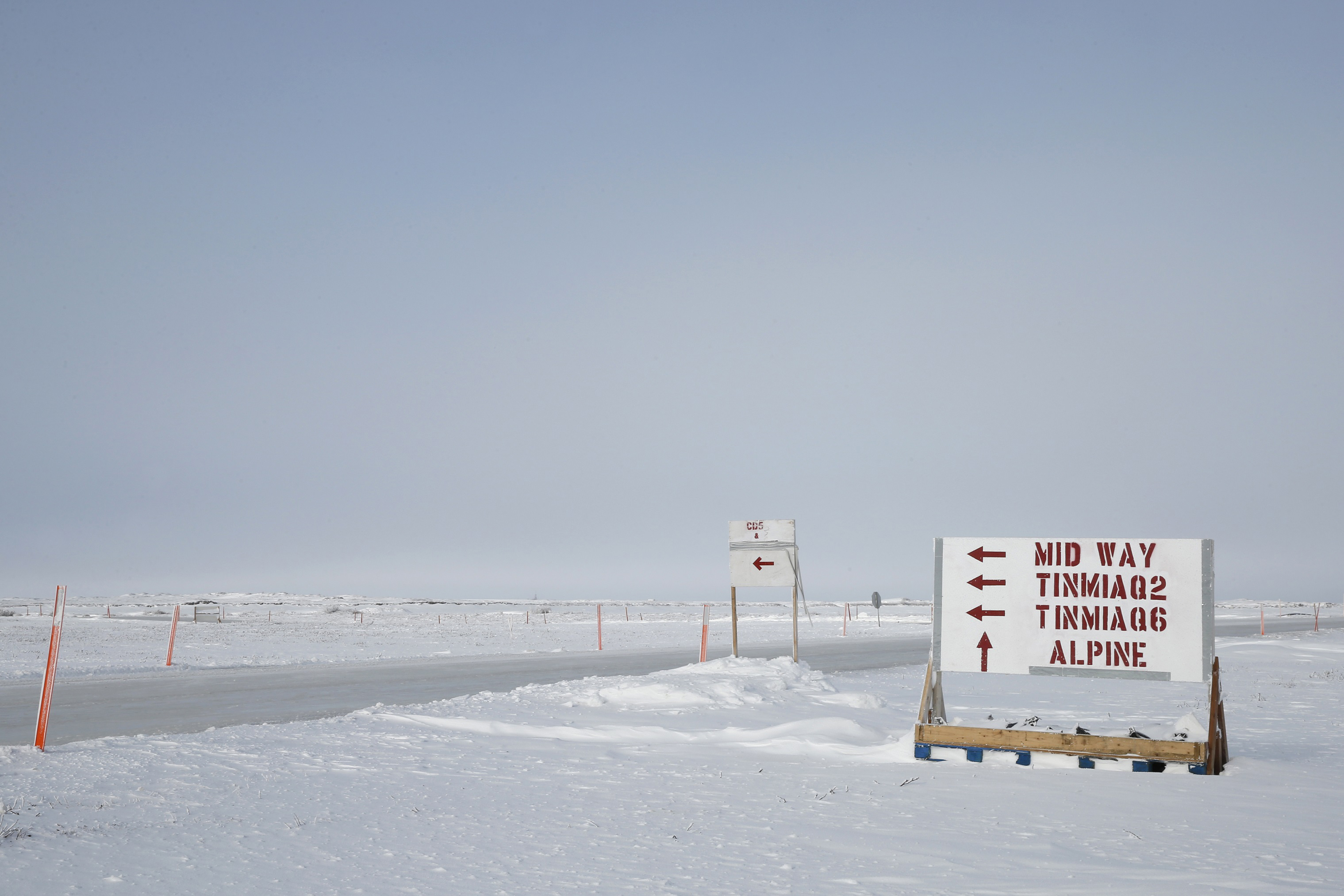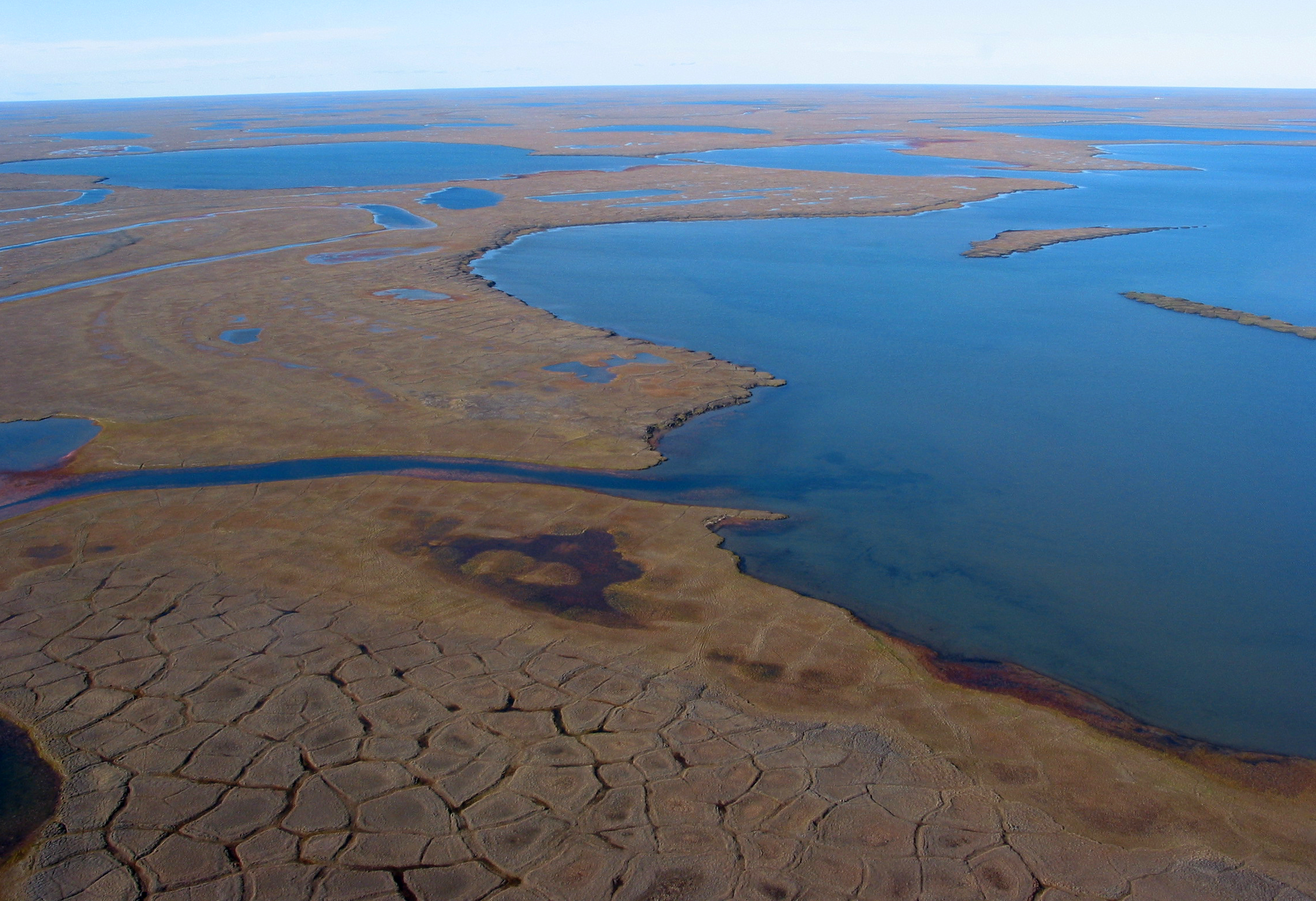Biden administration approves massive Willow oil project in Alaska
The Interior Department approved the project a scaled back version of the project after saying last month it was concerned about the greenhouse gas impacts of Willow.

LOS ANGELES/WASHINGTON — The Biden administration is approving a scaled-back version of ConocoPhillips’ $7 billion oil and gas drilling Willow project in Alaska, the U.S. Department of Interior said on Monday, drawing cheers from Alaska officials and the oil industry but criticism from environmental advocates.
The decision follows an aggressive eleventh-hour campaign from opponents who had argued the development of the three drill sites in northwestern Alaska conflicts with President Joe Biden’s highly publicized efforts to fight climate change and rapidly shift to cleaner sources of energy.
Alaska’s elected officials say the project will create hundreds of jobs and bring billions of dollars in revenue to state and federal coffers. The state relies heavily on revenue from oil production, but output has declined dramatically from its peak in the 1980s.
“I feel the people of Alaska have been heard,” U.S. Representative Mary Peltola, a Democrat from Alaska, said on a call with reporters. “The state of Alaska cannot carry the burden of solving our global warming issues alone.”
The fate of the project has been closely watched by Alaska officials, the oil and gas industry and green groups as Biden seeks to balance his goals of decarbonizing the U.S. economy with calls to increase domestic fuel supplies to keep prices low.
The Interior Department approved the project with three drill pads after saying last month it was concerned about the greenhouse gas impacts of Willow. ConocoPhillips had sought to build up to five drill sites and project infrastructure including dozens of miles of roads and pipelines and seven bridges.
The agency said the smaller scope will reduce the impact on habitats for species like polar bears and yellow-billed loons.
The administration also announced late on Sunday sweeping new protections for Alaska lands and waters that would keep nearly 3 million acres of the Beaufort Sea in the Arctic Ocean “indefinitely off limits” for oil and gas leasing, effectively closing off U.S. Arctic waters to oil exploration. It also issued protections for 13 million acres of “ecologically sensitive” special areas within Alaska’s petroleum reserve.

Environmental groups, however, criticized the Biden administration, saying it was trying to have it “both ways” on climate change.
“Promoting clean energy development is meaningless if we continue to allow corporations to plunder and pollute as they wish,” Food & Water Watch Executive Director Wenonah Hauter said.
Green groups have said they would challenge the project in court. U.S. Senator Dan Sullivan of Alaska said the congressional delegation is expecting an imminent legal challenge and is preparing an amicus brief to defend the project in court.
Houston-based ConocoPhillips welcomed Monday’s decision, having already endorsed the trimmed-down version of the project.
“This was the right decision for Alaska and our nation,” ConocoPhillips Chief Executive Ryan Lance said in a statement.
U.S. Senator Lisa Murkowski, an Alaska Republican, on Monday welcomed the “good news,” saying “this will mean jobs and revenue for Alaska” by bringing upwards of 180,000 barrels of oil per day into the Trans Alaska Pipeline.
Reporting by Nichola Groom in Los Angeles and Valerie Volcovici in Washington. Additional reporting by Susan Heavey in Washington and Toby Chopra.
This article has been fact-checked by Arctic Today and Polar Research and Policy Initiative, with the support of the EMIF managed by the Calouste Gulbenkian Foundation.
Disclaimer: The sole responsibility for any content supported by the European Media and Information Fund lies with the author(s) and it may not necessarily reflect the positions of the EMIF and the Fund Partners, the Calouste Gulbenkian Foundation and the European University Institute.
